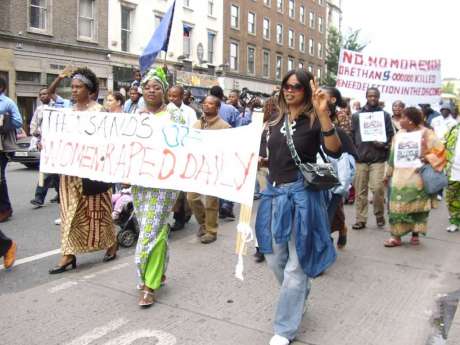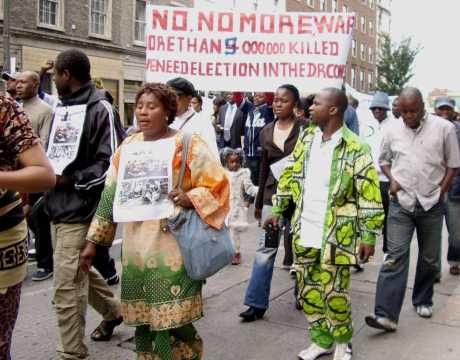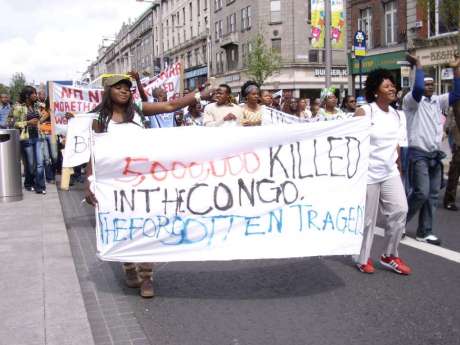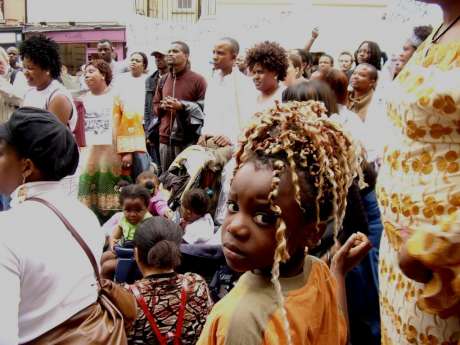Parse failure for https://anti-empire.com/feed/. Last Retry Wednesday December 31, 2025 22:49
Indymedia Ireland is a volunteer-run non-commercial open publishing website for local and international news, opinion & analysis, press releases and events. Its main objective is to enable the public to participate in reporting and analysis of the news and other important events and aspects of our daily lives and thereby give a voice to people.
 Fraud and mismanagement at University College Cork Thu Aug 28, 2025 18:30 | Calli Morganite Fraud and mismanagement at University College Cork Thu Aug 28, 2025 18:30 | Calli Morganite
UCC has paid huge sums to a criminal professor
This story is not for republication. I bear responsibility for the things I write. I have read the guidelines and understand that I must not write anything untrue, and I won't.
This is a public interest story about a complete failure of governance and management at UCC.
 Deliberate Design Flaw In ChatGPT-5 Sun Aug 17, 2025 08:04 | Mind Agent Deliberate Design Flaw In ChatGPT-5 Sun Aug 17, 2025 08:04 | Mind Agent
Socratic Dialog Between ChatGPT-5 and Mind Agent Reveals Fatal and Deliberate 'Design by Construction' Flaw
This design flaw in ChatGPT-5's default epistemic mode subverts what the much touted ChatGPT-5 can do... so long as the flaw is not tickled, any usage should be fine---The epistemological question is: how would anyone in the public, includes you reading this (since no one is all knowing), in an unfamiliar domain know whether or not the flaw has been tickled when seeking information or understanding of a domain without prior knowledge of that domain???!
This analysis is a pretty unique and significant contribution to the space of empirical evaluation of LLMs that exist in AI public world... at least thus far, as far as I am aware! For what it's worth--as if anyone in the ChatGPT universe cares as they pile up on using the "PhD level scholar in your pocket".
According to GPT-5, and according to my tests, this flaw exists in all LLMs... What is revealing is the deduction GPT-5 made: Why ?design choice? starts looking like ?deliberate flaw?.
People are paying $200 a month to not just ChatGPT, but all major LLMs have similar Pro pricing! I bet they, like the normal user of free ChatGPT, stay in LLM's default mode where the flaw manifests itself. As it did in this evaluation.
 AI Reach: Gemini Reasoning Question of God Sat Aug 02, 2025 20:00 | Mind Agent AI Reach: Gemini Reasoning Question of God Sat Aug 02, 2025 20:00 | Mind Agent
Evaluating Semantic Reasoning Capability of AI Chatbot on Ontologically Deep Abstract (bias neutral) Thought
I have been evaluating AI Chatbot agents for their epistemic limits over the past two months, and have tested all major AI Agents, ChatGPT, Grok, Claude, Perplexity, and DeepSeek, for their epistemic limits and their negative impact as information gate-keepers.... Today I decided to test for how AI could be the boon for humanity in other positive areas, such as in completely abstract realms, such as metaphysical thought. Meaning, I wanted to test the LLMs for Positives beyond what most researchers benchmark these for, or have expressed in the approx. 2500 Turing tests in Humanity?s Last Exam.. And I chose as my first candidate, Google DeepMind's Gemini as I had not evaluated it before on anything.
 Israeli Human Rights Group B'Tselem finally Admits It is Genocide releasing Our Genocide report Fri Aug 01, 2025 23:54 | 1 of indy Israeli Human Rights Group B'Tselem finally Admits It is Genocide releasing Our Genocide report Fri Aug 01, 2025 23:54 | 1 of indy
We have all known it for over 2 years that it is a genocide in Gaza
Israeli human rights group B'Tselem has finally admitted what everyone else outside Israel has known for two years is that the Israeli state is carrying out a genocide in Gaza
Western governments like the USA are complicit in it as they have been supplying the huge bombs and missiles used by Israel and dropped on innocent civilians in Gaza. One phone call from the USA regime could have ended it at any point. However many other countries are complicity with their tacit approval and neighboring Arab countries have been pretty spinless too in their support
With the release of this report titled: Our Genocide -there is a good chance this will make it okay for more people within Israel itself to speak out and do something about it despite the fact that many there are actually in support of the Gaza
 China?s CITY WIDE CASH SEIZURES Begin ? ATMs Frozen, Digital Yuan FORCED Overnight Wed Jul 30, 2025 21:40 | 1 of indy China?s CITY WIDE CASH SEIZURES Begin ? ATMs Frozen, Digital Yuan FORCED Overnight Wed Jul 30, 2025 21:40 | 1 of indy
This story is unverified but it is very instructive of what will happen when cash is removed
THIS STORY IS UNVERIFIED BUT PLEASE WATCH THE VIDEO OR READ THE TRANSCRIPT AS IT GIVES AN VERY GOOD IDEA OF WHAT A CASHLESS SOCIETY WILL LOOK LIKE. And it ain't pretty
A single video report has come out of China claiming China's biggest cities are now cashless, not by choice, but by force. The report goes on to claim ATMs have gone dark, vaults are being emptied. And overnight (July 20 into 21), the digital yuan is the only currency allowed. The Saker >>
 Gas Boiler Owners ?Will Subsidise Heat Pump Users? With New Levy Under Ed Miliband?s ?15 Billion Ene... Wed Dec 31, 2025 19:30 | Will Jones Gas Boiler Owners ?Will Subsidise Heat Pump Users? With New Levy Under Ed Miliband?s ?15 Billion Ene... Wed Dec 31, 2025 19:30 | Will Jones
Gas boiler owners could face a ?30 green levy on their energy bills to subsidise heat pump owners under plans reportedly being considered by Ed Miliband.
The post Gas Boiler Owners “Will Subsidise Heat Pump Users” With New Levy Under Ed Miliband’s ?15 Billion Energy Plans appeared first on The Daily Sceptic.
 Installations of EV Chargers Collapse Wed Dec 31, 2025 17:50 | Sallust Installations of EV Chargers Collapse Wed Dec 31, 2025 17:50 | Sallust
With the evidence increasing for Labour?s Net Zero dreams slowly imploding, another piece of bad news has come along for the end of 2025: the installation rate of EV chargers has collapsed.
The post Installations of EV Chargers Collapse appeared first on The Daily Sceptic.
 Nurse ?Attacked by Afghan Migrant in Crowbar Rampage? Reveals She Was ?Beaten Nearly to Death? Wed Dec 31, 2025 15:33 | Will Jones Nurse ?Attacked by Afghan Migrant in Crowbar Rampage? Reveals She Was ?Beaten Nearly to Death? Wed Dec 31, 2025 15:33 | Will Jones
A nurse who says she was attacked by an Afghan migrant in a crowbar rampage in a hospital waiting room alongside five others has revealed the extent of her injuries and said she was "beaten nearly to death".
The post Nurse “Attacked by Afghan Migrant in Crowbar Rampage” Reveals She Was “Beaten Nearly to Death” appeared first on The Daily Sceptic.
 Shamima Begum?s Ban from Britain Challenged by European Judges Wed Dec 31, 2025 13:30 | Will Jones Shamima Begum?s Ban from Britain Challenged by European Judges Wed Dec 31, 2025 13:30 | Will Jones
Shamima Begum?has had her bid to come back to Britain revived by a challenge from European judges after her lawyer argued she was a victim of grooming and trafficking.
The post Shamima Begum’s Ban from Britain Challenged by European Judges appeared first on The Daily Sceptic.
 Strip Extremist of Citizenship Before Egyptians Do, Starmer Urged Wed Dec 31, 2025 11:18 | Will Jones Strip Extremist of Citizenship Before Egyptians Do, Starmer Urged Wed Dec 31, 2025 11:18 | Will Jones
Britain must strip extremist Alaa Abd el-Fattah of his British citizenship before Cairo removes his Egyptian one,?Sir Keir Starmer?has been told.
The post Strip Extremist of Citizenship Before Egyptians Do, Starmer Urged appeared first on The Daily Sceptic. Lockdown Skeptics >>
Voltaire, international edition
 Will intergovernmental institutions withstand the end of the "American Empire"?,... Sat Apr 05, 2025 07:15 | en Will intergovernmental institutions withstand the end of the "American Empire"?,... Sat Apr 05, 2025 07:15 | en
 Voltaire, International Newsletter N?127 Sat Apr 05, 2025 06:38 | en Voltaire, International Newsletter N?127 Sat Apr 05, 2025 06:38 | en
 Disintegration of Western democracy begins in France Sat Apr 05, 2025 06:00 | en Disintegration of Western democracy begins in France Sat Apr 05, 2025 06:00 | en
 Voltaire, International Newsletter N?126 Fri Mar 28, 2025 11:39 | en Voltaire, International Newsletter N?126 Fri Mar 28, 2025 11:39 | en
 The International Conference on Combating Anti-Semitism by Amichai Chikli and Na... Fri Mar 28, 2025 11:31 | en The International Conference on Combating Anti-Semitism by Amichai Chikli and Na... Fri Mar 28, 2025 11:31 | en Voltaire Network >>
|
Dublin Demonstration Highlights Human Rights Abuse and Failed Politics in DR Congo
June 30th should have marked the end of the Democratic Republic of Congo (DRC)’s transition government, and seen the start of a hopeful, democratic future. But instead it is a country where millions of people are still suffering at the hands of corrupt leadership and interference by foreign governments. Hundreds of Congolese and Irish people took to the streets of Dublin yesterday to highlight this, and to draw attention to the appalling human rights abuses in the country.
 Congolese women highlight ongoing violence against women in DRC Close to 400 Congolese and Irish people took part in a demonstration that began at the top of O’Connell St. at 12.30pm, and proceeded to the Dáil. There, a memorandum, signed by representatives of Congolese groups in Ireland, was delivered to the Minister of Foreign Affairs, Dermot Ahern. The march then proceeded to the EU Office in Molesworth St., where the memorandum was also handed in to the Acting Head, Ms. Susan Sheil.
The demonstration was a colourful, vocal, and passionate plea to Irish and EU leaders to take measures to end the suffering in the DRC. The march, which was peaceful and orderly, was organised jointly by a wide range of Congolese groups in Ireland, including the UDPS, PALU, APARECO, People’s Eye and other political parties. It was supported by a long list of associations, non-governmental organisations, and ethnic groups, including Congo Lisanga, AGKA, BDD and Katanga, as well as the Congolese churches in Ireland.
Over four million people have died as a result of a civil war that began in the DR Congo in 1998. But despite the fact that the war is officially over, the tragedy of the Congo, which is seen by many as a crime against humanity on a par with the Holocaust of the Jewish people, is still ongoing.
The international community is currently engaged in a process intended to lead to the election of the DRC’s first democratic government. However, according to the organisers of yesterday’s demonstration, this process is flawed. Its transparency is questionable, they say, it is not inclusive of all parties, and it seems to be motivated more by a re-colonisation of Africa from its heart, the Congo, than a real desire to bring stability and independence to the region.
Those taking part in the demonstration emphasised that the Congolese people want elections. They want to vote for leaders who will bring peace, democracy, and respect for the rule of law, and for politicians that can lead this rich country on its way to development and prosperity. The current election process, which is supported by the Irish and other European governments, is not going to achieve this, according to the Congolese community in Ireland.
Since 1998, the DR Congo has had over 4 million deaths as a result of what the International Rescue Committee called “the deadliest war in the world since World War II”. Today the war is officially ended, but the country is still very unstable and the people live with the scars of war. Homes and hospitals have been destroyed, there have been mass killings, children are without families, and there is widespread sickness. People have to contend with lack of clean water, food, shelter, basic medical supplies and services. There are ongoing gross human rights violations in the country, as well as intimidation, rape and torture.
The demonstrators at Friday’s event in Dublin called on the Irish government to stop supporting an election process that was imposing an unsatisfactory political solution on the DRC. They called on Irish political leaders to engage in efforts to facilitate a dialogue among all the Congolese political class instead, and to ensure full inclusiveness in any process undertaken to bring stability to the country.
Ireland’s long-lasting relationship with the Congo was highlighted in a speech made outside the Dáil by one of the demonstration’s organisers. Pastor Remba, who spoke on behalf of all the Congolese churches in Ireland, recalled that in the 1960’s Irish soldiers died for peace in the Congo. This was also highlighted in the memorandum presented to the Minister for Foreign Affairs, which called on the Irish government to honour these past efforts by presenting an open and clear position in relation to the Congo. It called on the Irish to withdraw their support for the current transition leadership structures there, and to concentrate on helping through serious NGO’s operating in the country. “The money given [to the Congolese government] to help the population is always misused by the predators in power” according to the memorandum.
The memorandum also demanded the trial of those responsible for the suffering in the Congo, regardless of their high position in governments and/or other organisations in the Central Africa region. “The perpetrators and executants of the Congo massacres are all well known, easy to locate and to bring in front of an international jurisdiction” it said. “Only the trial of those criminals can help the international community to regain some credit in the Congo”.
The Congolese groups in Ireland also expressed their regret that Ireland has sent its soldiers as part of the current EU mission to protect observers in the “dangerous and unfair election process”. They also asked the Irish Government and fellow EU members to withdraw their 2000 soldiers “sent to protect the regime in place, against the will of the Congolese citizens”. The UN forces of MONUC should also be withdrawn they said. “There are mercenaries from Rwanda, Burundi, Uganda, Eritrea and other parts of the world still colonising the Congo, and the UN have failed in their mission to pacify the country and should leave.”

Demonstrators call for an end to human rights abuses in DRC

Congo - the "forgotten tragedy"

The crowd listen to a speech outside the Dáil
|
 international |
rights, freedoms and repression |
news report
international |
rights, freedoms and repression |
news report
 Saturday July 01, 2006 15:39
Saturday July 01, 2006 15:39 by John Lannon
by John Lannon johnlannon at eircom dot net
johnlannon at eircom dot net




























 printable version
printable version

 Digg this
Digg this del.icio.us
del.icio.us Furl
Furl Reddit
Reddit Technorati
Technorati Facebook
Facebook Gab
Gab Twitter
Twitter